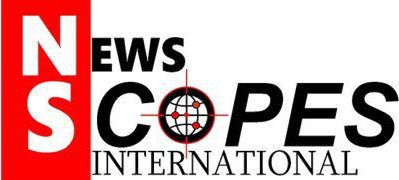“منطقة عازلة وحصار بحري”: وزير إسرائيلي يكشف تفاصيل شروط اتفاق وقف إطلاق النار مع لبنان
المقالة باللغة العربية:
في إطار المباحثات المستمرة حول التوصل إلى اتفاق لوقف إطلاق النار بين حزب الله وإسرائيل، بناءً على المبادئ الأساسية لقرار مجلس الأمن رقم 1701، عرض وزير الشتات ومكافحة معاداة السامية في إسرائيل، عمحاي شيكلي، صباح اليوم الثلاثاء، مجموعة من المطالب التي يراها ضرورية ليتم تضمينها في أي اتفاق مستقبلي مع لبنان.
وأعرب شيكلي عن قلقه من أن أي اتفاق قد يسهم في منح حزب الله مكاسب سياسية أو ميدانية، مؤكدًا على ضرورة أن تضمن إسرائيل ألا يحقق حزب الله أي إنجازات من خلال مثل هذا الاتفاق. وأوضح أن إسرائيل لن تقبل بتلك المكاسب تحت أي ظرف، مشيرًا إلى أن إسرائيل ستسعى جاهدة لضمان مصالحها الأمنية والسياسية في أي تفاهم مستقبلي.
من أبرز مطالب شيكلي كان الإلغاء الكامل للاتفاق البحري الذي تم توقيعه بين إسرائيل ولبنان في عهد رئيس الوزراء السابق يائير لابيد. وأكد شيكلي أن لبنان قد انتهك هذا الاتفاق بشكل صارخ في 8 تشرين الأول 2024، عندما قامت القوات اللبنانية بالتحركات التي اعتبرها تهديدًا لهذا الاتفاق. وشدد على أن هذا الاتفاق يجب أن يُلغى في أي تسوية محتملة لضمان عدم استغلال حزب الله لهذا الاتفاق لصالحه.
كما طالب شيكلي بإبعاد قوات حفظ السلام الدولية (اليونيفيل) من مناطق جنوب لبنان، مبررًا مطالبته هذه بأن قوات اليونيفيل قد فشلت في أداء مهامها بشكل كامل، وأصبحت في الواقع تستخدم كقاعدة لجمع المعلومات الاستخباراتية لصالح حزب الله. وقال شيكلي: “من الضروري إعادة تقييم دور اليونيفيل في المنطقة بما يتماشى مع المتطلبات الأمنية الإسرائيلية”.
وفي خطوة مثيرة للجدل، طالب شيكلي بتأكيد استمرار التواجد العسكري الإسرائيلي في مناطق معينة داخل الأراضي اللبنانية. وأضاف أن “الجيش الإسرائيلي يجب أن يحتفظ بمنطقة عازلة ضيقة في المناطق الحيوية لضمان السيطرة النارية والمراقبة على البلدات الإسرائيلية”. وأوضح أنه يجب على إسرائيل أن تسيطر على مناطق استراتيجية مثل مرتفعات الحماميس شرقًا، ومرتفعات النبي العوادي، ومرتفعات الشاكيد، بالإضافة إلى مرتفعات السُّلم. واعتبر شيكلي أن هذه المناطق يجب أن تبقى تحت السيطرة الإسرائيلية لضمان الأمن والاستقرار في المنطقة.
وفيما يخص التقدم الذي حققته إسرائيل في العمليات العسكرية ضد حزب الله، قال شيكلي: “الضربات المتتالية التي وجهت إلى قيادات حزب الله والعمليات البرية حققت مكاسب هائلة، ولا يمكن التنازل عنها مقابل هدوء زائف”. وأضاف: “لقد تعلمنا من التجارب السابقة أن شراء الهدوء في أسواق الشرق الأوسط قد تكون له تكلفة باهظة”، في إشارة إلى أن إسرائيل يجب أن تكون حذرة في أي اتفاق مستقبلي لضمان عدم تدهور الوضع الأمني مرة أخرى.
تصريحات وزير الشتات ومكافحة معاداة السامية، عمحاي شيكلي، تظهر أن إسرائيل لا تزال تتبنى موقفًا متشددًا في المفاوضات المتعلقة بوقف إطلاق النار مع حزب الله. ورغم الضغوط الدولية والمحلية التي تدفع نحو التهدئة، يبقى شيكلي مؤمنًا بأن أي اتفاق يجب أن يضمن تعزيز الوضع الأمني لإسرائيل دون منح حزب الله أو لبنان أي مكاسب، مع الحفاظ على تعزيز موقف إسرائيل الاستراتيجي في المنطقة.
المصدر: رصد موقع سكوبات عالمية
As part of the ongoing discussions regarding a ceasefire agreement between Hezbollah and Israel, based on the fundamental principles of UN Security Council Resolution 1701, Israel’s Minister for Diaspora Affairs and Combating Antisemitism, Amichai Chikli, presented a set of demands this Tuesday morning, outlining what he sees as necessary elements to include in any future agreement with Lebanon.
Chikli expressed concern that any potential agreement could lead to political or military gains for Hezbollah, stressing that Israel must ensure that Hezbollah does not achieve any gains through such an agreement. He emphasized that Israel cannot accept any such gains under any circumstances, asserting that Israel will work to protect its security and political interests in any future understanding.
One of Chikli’s key demands was the complete cancellation of the maritime agreement signed between Israel and Lebanon under former Prime Minister Yair Lapid. Chikli pointed out that Lebanon had “blatantly violated” this agreement on October 8, 2024, when Lebanese forces conducted actions that he viewed as a threat to the agreement. He argued that this agreement should be annulled in any potential settlement to ensure Hezbollah cannot exploit it to its advantage.
Additionally, Chikli called for the removal of United Nations peacekeeping forces (UNIFIL) from southern Lebanon, justifying this demand by stating that UNIFIL had “failed completely” in carrying out its mission, effectively becoming a base for gathering intelligence for Hezbollah. He said that it is crucial to reassess UNIFIL's role in the region in line with Israel’s security requirements.
In another controversial move, Chikli demanded confirmation of Israel's continued military presence in certain areas of Lebanese territory. He stated, “The Israeli army must maintain a narrow buffer zone in vital areas to provide fire control and surveillance over Israeli towns.” He clarified that Israel must control strategic areas such as the Hamamis Heights in the east, the Nabi Chawadi Heights, the Shaked Heights, and the Sulam Heights. Chikli argued that these areas must remain under Israeli control to ensure security and stability.
Regarding the progress Israel has made in military operations against Hezbollah, Chikli stated, “The series of strikes against Hezbollah leadership and ground operations have achieved immense operational gains, and these cannot be conceded in exchange for a false calm.” He added, “We have learned from past experiences the cost of buying peace in the Middle East markets,” suggesting that Israel should be cautious in any future agreement to prevent a deterioration of the security situation.
Minister Amichai Chikli’s statements highlight Israel's continued tough stance in negotiations regarding a ceasefire with Hezbollah. Despite international and local pressure pushing for de-escalation, Chikli remains firm that any agreement must secure Israel's security without offering any gains to Hezbollah or Lebanon, while strengthening Israel’s strategic position in the region.







